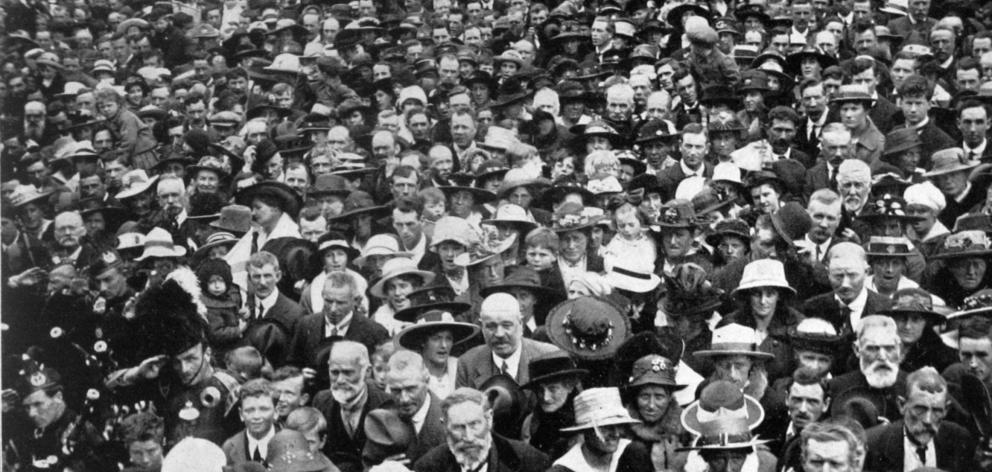
The Press Bureau states that Mr Lloyd George telephoned to Downing street from Paris : "News has arrived that Austria-Hungary, the last of Germany’s props, has gone out of the war. General Diaz signed the armistice on Sunday afternoon, and it comes into operation at 3 o’clock on Monday."
The clamour of bells, the shrill tootings from railway engines, and the more throaty roar from the whistles at the factories and the steamers at the wharf acclaimed the fact yesterday shortly before 12 o’clock that another history-making event had been flashed over the wires. The news by the extraordinary cablegram concerning the granting of an armistice, under conditions, to Austria, was quickly conveyed to the Mayor at the Town Hall, and by him announced from the stage to the several hundred people who quickly gathered. The Mayor concluded a brief address by declaring a half-holiday and setting 3 o’clock as the hour for the official celebrations. Then the bells and whistles spoke out again, and continued to sound the joyful tidings till after 1 o’clock. The town was quickly beflagged, and the vessels in the harbour were gaily decked with bunting. A close holiday was observed, and the hotels closed from half-past 2 to 4 o’clock.
Beer but no tea
Judging by appearances, the rough and ready compulsion in the matter of closing down brought to bear yesterday by posses of self-appointed patriots was scarcely exerted in equitable fashion. Hundreds of people, after parading the streets for an hour or two, were denied the refreshment of the cup of tea which cheers but does not inebriate, and at the same time hundreds more bore evidence of having imbibed that other form of liquid refreshment which inebriates while it cheers. It was impossible, for instance, not to feel sympathy with the band of young women who with flags flying and patriotic song marched gaily up three flights of stairs to a well-known tea-room only to find the doors closed.
Peacetime effort needed
"We have to remember, when this war comes to an end, that peace as well as war has its problems, and we have to face these problems with energy, intelligence, and industry," said the Prime Minister at Wellington.
"If we are to do our duty as citizens of the Empire in peace, as we have done in war, we have got to bring about a state of things that will be better for this country, for the other countries engaged in the war, and for humanity as a whole.
"That is our consolation to-day for the sacrifices that have been made. I say, as one of the public men of the country, that we want the support of citizens. We have stood together as citizens during this long struggle.
"We have done our duty as citizens.
"We must continue to do our duty when this war comes to an end, and see that wherever it is possible to bring about an improvement — and there are plenty of improvements possible — the improvement is made." — ODT, 5.11.1918.
• COPIES OF PICTURE AVAILABLE FROM ODT FRONT OFFICE, LOWER STUART ST, OR WWW.OTAGOIMAGES.CO.NZ












